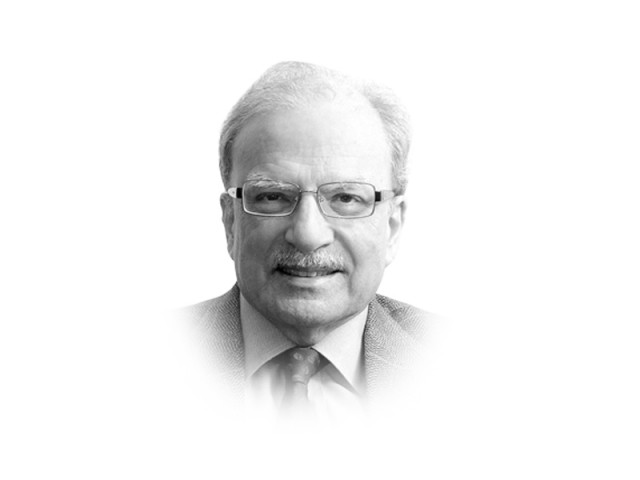The PML-N on the economy
What the PML-N is less clear about is its plan to find the money to finance the effort it wants to launch.

The writer is a former caretaker finance minister and has served as vice-president at the World Bank
The PML-N’s 104-page long manifesto has correctly read what ails the Pakistani economy and society. What it would do if it gained power in Islamabad after the elections on May 11 also makes sense. What the party is less clear about is its plan to find the money to finance the effort it wants to launch. Like Lula’s list, the PML-N’s programme is also ambitious. That said, the most puzzling statement in the document is that in the 21st century, Pakistan will “emerge as one of the top 10 economies of the world”. This would be quite an achievement. At this time, Pakistan, by my reckoning, is the 42nd largest economy in the world, behind Iran, Israel and Egypt. It is promises such as these that reduce the credibility of a manifesto. That apart, the manifesto has many worthwhile suggestions.
The PML-N has a correct diagnosis of the problems the country faces — high and unsustainable fiscal and balance of payments deficits; high and rapidly increasing burdens of domestic and external debts, which have resulted in large debt servicing; poorly performing public sector enterprises; no controls on non-development public sector expenditure; declining government outlays in such critical areas as education, health and skill development; very serious energy shortages; and very little investment in improving the economy’s technological base. Among the promises it has made are major improvements in all these areas.
The manifesto is strong on the need for improving the physical and human resource base of the country. It promises that the state will work closely with the private sector to build roads, bridges, ports and (presumably) improve the railway system. It also promises to increase the amount of electric power that is generated, especially by using the country’s enormous coal reserves — Thar coal, we are told, has 175 billion tonnes of reserves, enough to generate 100,000 MW of power for a hundred years. Exploiting this, along with renewable sources of energy will help to close the inequality of access that currently exists. The manifesto indicates that power shortage is causing a loss of $5 billion a year to the economy and a loss of a million jobs. This has also reduced export earnings by $2.5 billion. As much as 40 per cent of the population does not have access to electricity. Recognising that the provinces under the Eighteenth Amendment now have a lot of authority in economic matters, the party makes two interesting proposals. It will set up a wholesale market for energy, presumably one in which the energy-surplus provinces could sell to those who are in deficit. It also tackles the shortage of public funds for the building of needed infrastructure by allowing cities to raise capital from the market. Credit-worthy cities could sell infrastructure bonds to raise the amount needed for specific projects.
This brings me back to the conversation I had with soon-to-be-elected President Lula. The job of financing the programme he was promising to deliver to his people would be worked out by the economists on his team. The PML-N manifesto team had plenty of experienced people who helped draft the programme. Two former finance ministers and one former planning minister were called upon to develop the proposals in the manifesto. It would have helped if the entire programme had been costed out and the way for finding the needed resources more clearly spelt out.
The promise to increase the tax-to-GDP ratio by more than one percentage point a year and reach 15 per cent by 2018 and to increase the Public Sector Development Programme so that more gets invested in education and health will need more money coming into the state’s coffers. But how will that happen? The party promises full documentation of all transactions that take place. It should have promised that in achieving this objective, it will not succumb to the political pressure of small shop-keepers who are part of its constituency. It has promised not to raise the incidence of taxation but not to spare any sector from being taxed. Does this mean that incomes from agriculture will pay the same amount as tax as the incomes from other parts of the economy? It would have helped if such a promise had been made explicitly in the manifesto. What about a value-added tax? The manifesto promises that a uniform sales tax will be levied. Is that a veiled reference to a value-added tax? To rephrase an old dictum: the intentions are good but the proof will be in their implementation.
Published in The Express Tribune, April 15th, 2013.














COMMENTS
Comments are moderated and generally will be posted if they are on-topic and not abusive.
For more information, please see our Comments FAQ